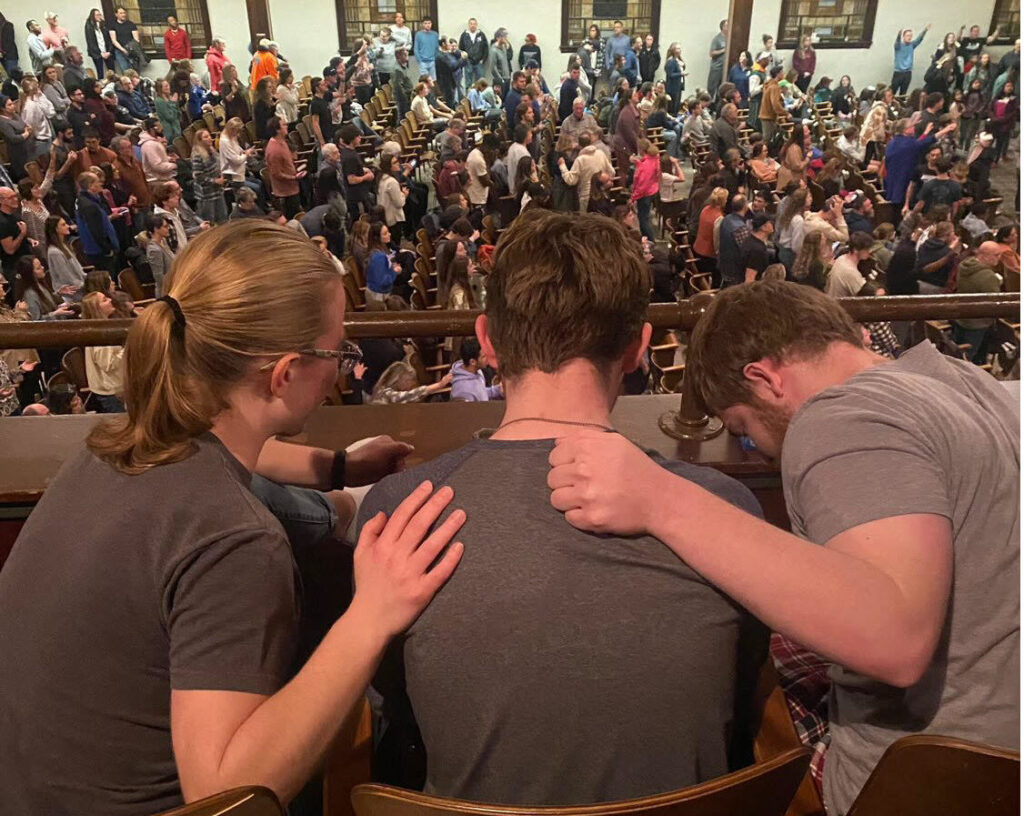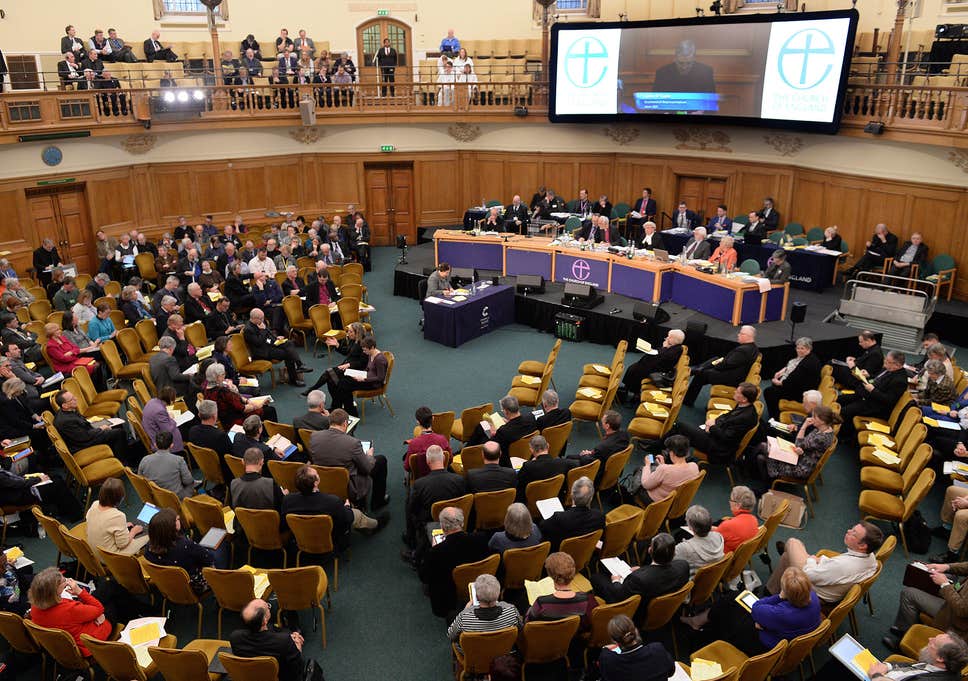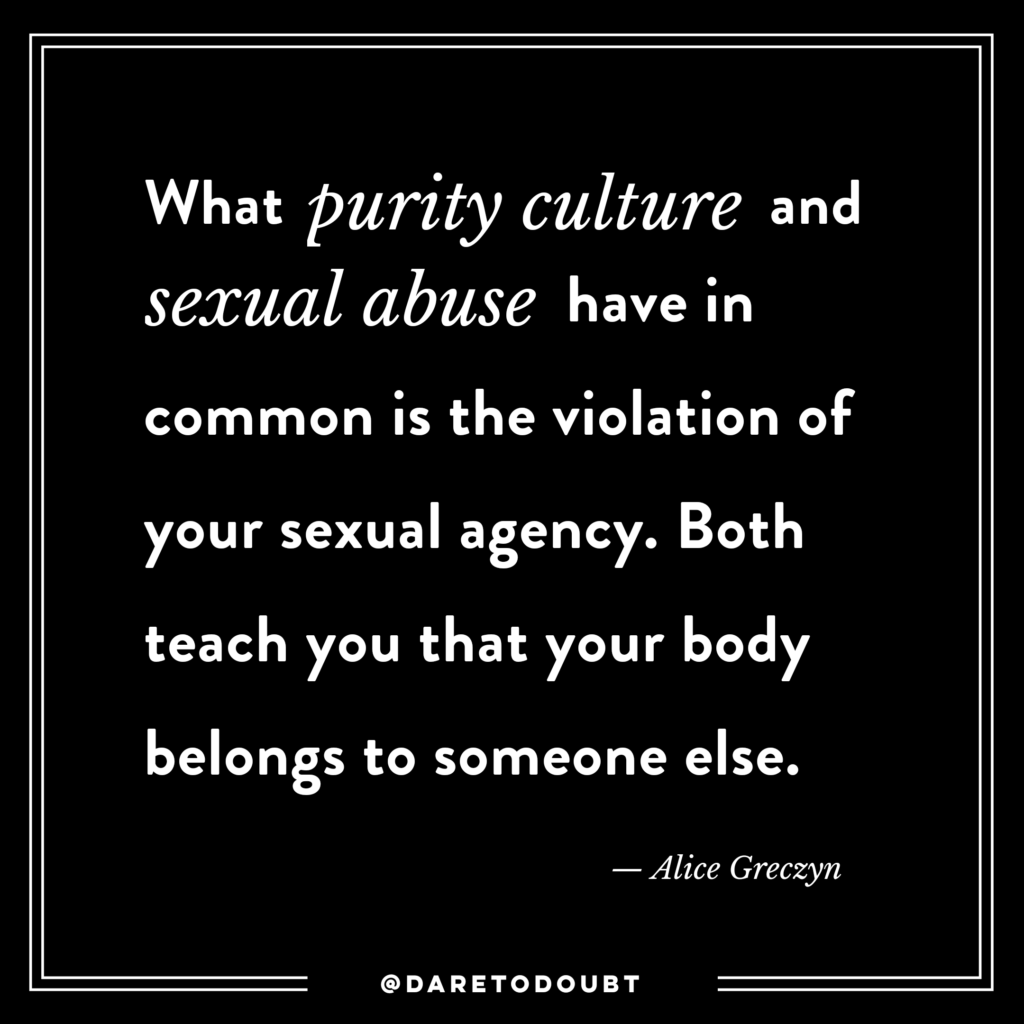
The Church of England Evangelical Council (CEEC) has spoken. The Council members have called on every evangelical church, member or leader, to action in response to General Synod’s decisions on marriage in London in early February. If every individual who self-describes as an evangelical were to follow the CEEC’s call, it could possibly mark the end of the Church of England as a body which celebrates diversity and inclusivity. In summary, the CEEC seems to be trying to transform the CofE to become more like an evangelical sect. This new body would have a very selective and tenuous link with its past Anglican traditions. Its roots and nourishment from its catholic past would be erased from memory. In its place there would be highly selective reading of Anglican history. This would privilege a group of 16th century Protestant Divines over most other periods of the rich Anglican experience. Simultaneously there would be no interest in maintaining the goodwill of the vast mass of the people of England. Another way of putting this would be to say that the CEEC is actively seeking to create a new Church of England quite different from its traditional and current manifestations. It would then be hard, in any sense, to refer to it as our national Church.
These are strong words, but I have identified in my mind three ways that the two recent documents issued by the CEEC can be read as a direct or indirect attack on the identity of the CofE as we know it. One is a six-page document to ‘evangelicals’ to take ‘appropriate actions’ following the Synod vote. The other is a call to the same group to write letters of protest to the various non-CEEC bishops that oversee their parishes and networks. Were every ‘evangelical’ to follow these instructions, I can see a blizzard of pressure on the institution that would become intolerable for existing church structures and the leadership which has to deal with it.
The first way in which the CofE is already facing threats to its existence and integrity, is that it contains within it groups and factions predisposed to show intolerance to others. The ultra-conservative wing, represented by the CEEC, implicitly questions the right of those with moderate or liberal opinions to have a place within the fold. There is the assumption that the CEEC and its linked organisations alone have a claim on biblical truth and thus the true Anglican tradition. This is based on a ‘correct’ interpretation of the Bible and knowing how it is to be understood. Those of us who have spent substantial amounts of time reading and studying Scripture over the years know that any claims of certainty when interpreting Scripture are likely to be questionable. There is hardly ever such a thing as a universally agreed understanding of a single passage of Scripture. Many disputes from the past, like the authorship of the book of Isaiah, are answered with ‘political’ rather than scholarly tools. The belief in an ability to arrive at certainty in many areas of biblical interpretation remains a chimera. Even the smallest amount of exposure to so-called ‘higher criticism’, which includes some knowledge of Greek and Hebrew, reveals how difficult it is to reach universally agreed interpretations. There also has to be room for our understandings to evolve and change. The assumption that Calvinist (or Catholic) biblical interpretations are somehow always correct is thus highly questionable. This is particularly true for those of us who have studied theology in a non-sectarian setting. The CEEC may represent a phalanx of Christian opinion that believes it possible to settle on fixed or final opinions about scriptural truth, but this position in no way represents the wider Anglican tradition. The ‘liberal’ opposing point of view to the CEEC comes from those who simply do not believe in settled opinions or unchallengeable answers in theology. For us, whether professionally educated or open to new insights at every point in our Christian pilgrimage, there is a simple demand for our right to hold on to our evolving understandings of scripture. No one I know wants to deny that right to the conservative interpreters; they do however object when the fundamentalist wing represented by CEEC seems to suggest that all ‘liberal’, questioning thinking should be declared heretical and outlawed in the CofE. Would the CEEC want to destroy the places of learning, – places where discussion, debate and differences of opinion coexist – to be destroyed in favour of a monochrome conservative Anglicanism? The claim to possess the ‘truth’ in Christian teaching carries with it this implied threat. Unless you agree with us and follow our implied assumptions about truth, we believe that you have to disappear in the interests of having a Bible-based, orthodox pure body. To put things at its simplest, the CEEC would like all who do not agree with its teaching to go away, allowing approved evangelicals alone to ‘preach the Gospel’ as the Council understands it.
The second way that the CEEC is creating serious stress for the CofE is in the document that calls for a blizzard of letter writing to bishops. The letter is to contain the points that are provided in a document helpfully provided by the CEEC. All the letters which may come from individuals or parishes will say the same thing. In CEEC’s words the letter ‘will call on our bishops to joyfully reaffirm the Bible’s teaching on marriage and sex as good news for individuals and for society as a whole.’ The comment I make to this call for letters to be written, is to contemplate the effect on those who receive such missives. If I received 5000 such letters from a group of unknown people, I would feel very pressured and not know how to react. What is the CEEC really trying to achieve with this document? I could make various guesses but one thing I know that will happen, is that this action will result in stress and a sense of demoralisation among these senior Anglican leaders.
Through my blogging activities I can recall times when I have been made aware of failures among the episcopate in the safeguarding arena. Such failures are patently visible in today’s SCIE report on Lambeth Palace. Whatever else is true, bishops and archbishops have to endure, whether or not deserved, a great deal of stress as part of their job. Whether CEEC means to increase their stress or not, it is obvious that the emails and letters that all the bishops can expect will clog up their letter boxes and in-trays for weeks to come. Ignoring all these missives may be one way of dealing with the flood, but others may feel obliged to answer each one. Putting extra stress on bishops is one way of making their role seem decidedly unattractive. Is the plan of the CEEC to wear down this body of CofE leaders so that they buckle under the stress? Will the office of CofE bishop now be seen, more clearly than ever, to be a poisoned chalice so that no one of ability would want the role? Are there still enough able men and women in the system willing to risk their happiness and stability to take on such a task? If the office and role of bishop ever became so toxic that suitable potential candidates refused to take it on, that would create a crisis for the Church. Very quickly that would become destructive to the well-being of the whole body. Perhaps the CEEC is plotting to have its own cohort of nominees to step in, if the traditional pool of likely candidates dries up.
The third way that the activities of the CEEC are a threat to the whole CofE is through the way the current tensions over same sex marriage are being viewed by the public. Most fair-minded non church people accept that there is a debate to be had over the nature of marriage and the issue of same-sex relationships. Only a few will take the view that there is nothing to be discussed because some authority, whether the Bible or some religious expert, has decreed a final answer to the problem. I cannot imagine that the wider public will ever, in Britain, favour the right-wing or authoritarian approach to the issue. In short, any ‘victory’ by the CEEC in the current debates would in no way make the ‘gospel’ attractive to the bulk of the population. If anything, we might see a deeper estrangement between British society and what remains of the Church. Society has shifted irrevocably. Short of something like a Trumpian revolution in Britain, it is impossible to imagine that opinions about private sexual morality will substantially change in the next fifty years. To summarise, any further insistence on equating the Christian faith with reactionary attitudes on sexual morality will severely compromise the already weakened contract between the CofE and society. The genius of Anglicanism to be a broad church, tolerating a wide variety of opinions and attitudes, will be gone for ever.
The provocative question in the title of this piece can now receive an attempted answer. There is, no doubt, no deliberate intention to undermine the CofE on the part of the CEEC. Nevertheless, their actions, which have been taken in the light of the recent Synod debate, have damaging institutional consequences. Putting pressure on all the bishops is fairly harmful to their morale and thus to the wider organisation. Thrusting all our bishops into an unwanted political maelstrom also creates a situation profoundly unhelpful to their wellbeing. No one desires that anyone should suffer in this way, but the suffering and consequent stress to the whole institution is real. Challenging the large section of the church we call liberals, by questioning their honesty and even their right to exist as bone-fide Christians, is a serious form of bullying. Such bullying is debilitating and may contribute further to a weakening of the Church. Our attempt to remain loyal members of an institution which such behaviour is found is hard to sustain.







